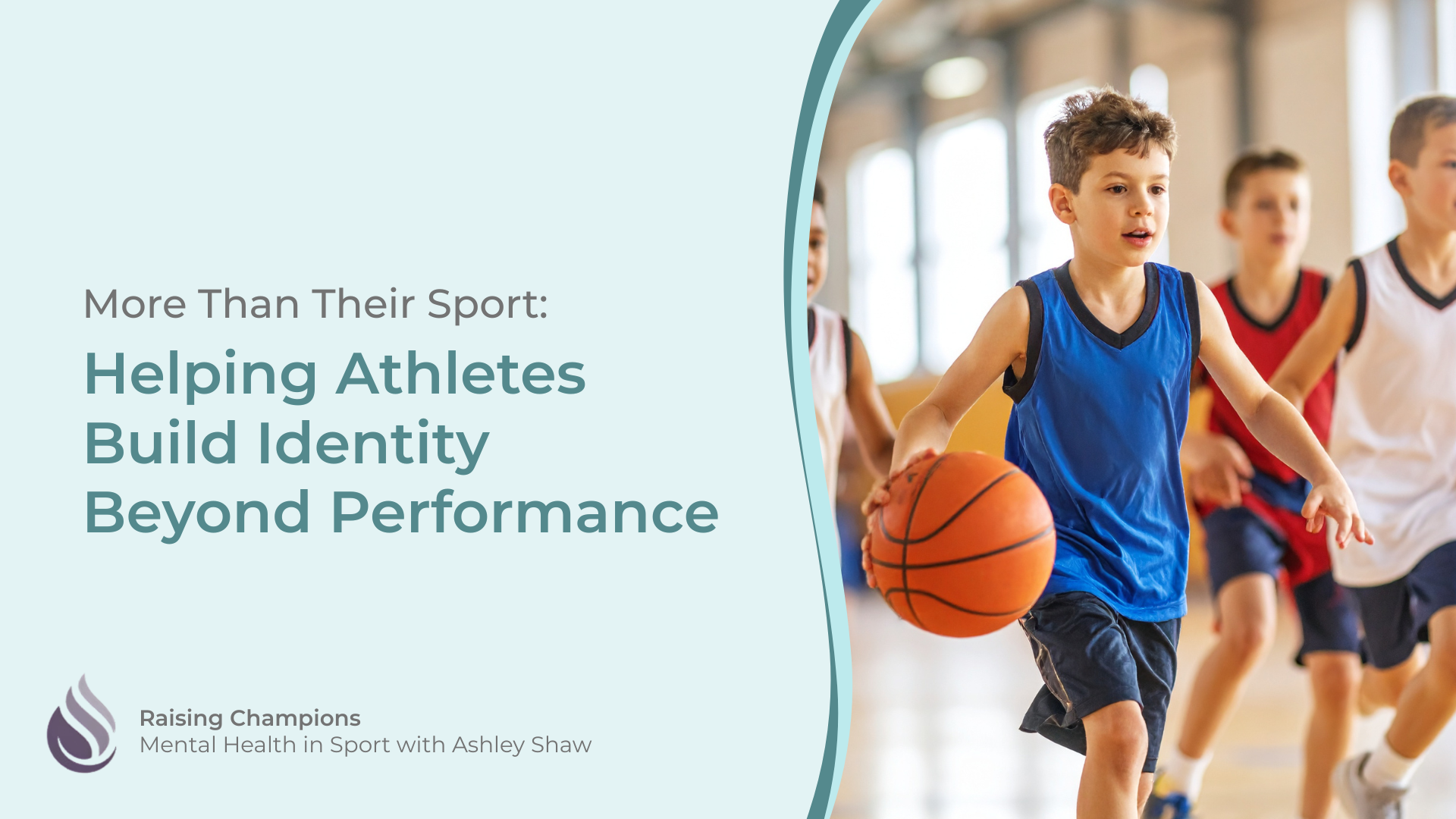
22 Nov More Than Their Sport: Helping Athletes Build Identity Beyond Performance
As a coach, I’ve seen it many times. An extremely talented athlete with incredible potential, shattered by a serious injury. They’ve put so much time and energy into being an athlete, that they have built their entire identity on their sport. But when that’s gone, they struggle to find themselves because they haven’t spent enough time focusing on who they are beyond their sport.
“Who am I if I can’t play hockey?”
It’s the question that’s at the core of every athlete’s identity crisis.
When Sport Becomes Self
In my Calgary practice, I work with so many athletes who’ve built their sense of worth entirely around achievement.
They’re disciplined, driven, and successful — until something stops them: injury, burnout, rejection.
When sport is your whole identity, losing it feels like losing yourself.
And the grief that follows is very real.
Why This Happens
Sports reward consistency, control, and external validation — all of which can reinforce conditional self-worth.
The problem is, it teaches kids how to succeed but not who they are without success.
When an athlete can only feel good about themselves when they’re performing well, they become emotionally fragile — no matter how talented they are.
What I Teach My Calgary Clients
One of my favorite sessions involves helping athletes make a list of all the qualities they bring to sport that aren’t athletic:
Curiosity. Courage. Humor. Leadership. Perseverance.
Then I ask, “Where else in your life do you use these?”
That’s when the lightbulb goes off.
They realize the thing that makes them great at sport isn’t their skill — it’s who they are as a person.
A Parent’s Role
Parents can help by separating identity from performance in everyday language:
Instead of, “You’re such a great hockey player,” try “I love watching how hard you work.”
Instead of, “I’m proud of you for winning,” try “I’m proud of how you handled that challenge.”
These small shifts tell your child: You are valued for your character, not your outcomes.
What Healing Looks Like
Helping athletes rebuild identity means guiding them through grief.
They’re not just losing a routine — they’re losing a piece of who they believed themselves to be.
When they can reconnect with parts of themselves outside of sport — friendship, creativity, rest, humor — they start to recover confidence that can’t be taken away by an injury or a bad game.
Closing Thought
In Calgary, we raise incredible athletes. But I believe our greatest success stories are the ones who know who they are when the jersey comes off.
At Still Waters Psychology Calgary, my team and I help athletes, parents, and families build balanced identities rooted in more than performance — because who you are will always matter more than what you do.




No Comments